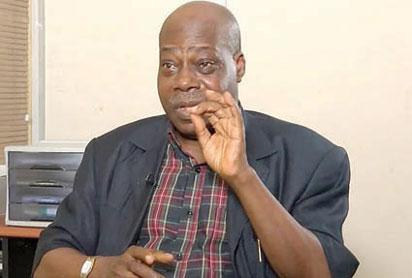
•Ray Ekpu
By Charles Kumolu, Deputy Sunday Editor
IN his writings, Nigeria witnessed history and woke up to the realities of the time. He provided courageous checks on those who wielded the greatest power. He shone the light on what power wielders did in the dark and held them to account. At a time when the nation groaned under military dictatorship, his writing was a force for progressive social change. Alongside other men of courage, Ray Ekpu staked his all in the pursuit of truth and freedom in a society continually held hostage by the rent-seeking leadership class.
He was hunted for marshalling arguments about how policy directions should have been. The specifics of his travails on the job provide insight into understanding his passion for journalism. He was detained six times in various prisons by four past governments. That wasn’t all. The septuagenarian was tried for murder and mutiny for writing and publishing articles that did not go down well with some governments.
Regardless, he defied the decline, or better yet, the near-absence, of press freedom in that era and soldiered on for a free and thriving society. Though his active years in journalism were among Nigeria’s darkest in terms of liberty, his writings provided a cause for optimism.
Read Also: Vanguard Personality of the Year: Honouring pursuit of good over evil
To borrow somewhat from Claire Schaeffer-Duffy’s article on the late American journalist and social activist, Dorothy Day, Ekpu’s writings “stirred deep optimism” when times were at their worst for the nation. Inspired by a father, Chief Amos Ekpu, who called himself a poor man with integrity, he grew from admiring the writings of the late Udo Awa, Nnamdi Azikiwe and MC Ajulukwu to becoming one of the finest journalists of his generation.
His passion for seeking the truth for society’s sake, led him, the late Dele Giwa, Yakubu Mohammed, and Dan Agbese to establish Newswatch Magazine in 1985. The stimulating effect the title had on not just the media industry, but also the polity, was emblematic of its founders’ wealth of knowledge including editorial skills. To date, the magazine is still credited with having pioneered bold investigative reporting in Nigeria.
In Proscription as a Tool of Military Dictatorial Means of Conflict Management in Nigeria, I. W. Udomisor and Emmanuel Udo-udo Ibekwe, observed that “the coming of the Newswatch magazine with its new style of journalism, which embodied detailed facts and an investigative approach to reporting, was greatly appreciated by the Nigerian public, particularly the educated elite.”
As the Editor-in-Chief of the magazine, Ekpu’s editorial skills earned him the global International Editor of the Year Award in 1987. He was 38 and the first black man to win the award for “courage, enterprise, and leadership in advancing press freedom and responsibility, defending human rights, and fostering journalistic excellence.” The award was given to him by the World Press Review, based in New York, USA. The following year, 1988, he was named one of the Outstanding Young Persons of the World by Jaycees International in Sydney, Australia.
In 1995, he was given the 20th Century Award in recognition as one of 500 leaders of influence by the American Biographical Institute. Aside from his newsroom talents, Ekpu is reputed for promoting excellence in journalism. This he has done both as an individual and as President of the Newspapers Proprietors Association of Nigeria, NPAN. He had emerged as NPAN president after winning the first election conducted by the association. In 2021, the Ray Ekpu Prize for Investigative Journalism was instituted by the Inoyo Toyo Foundation in recognition of his contributions to journalism.
The history of the return to civil rule in Nigeria won’t be complete without a copious mention of the sacrifices of the likes of Ekpu, who considers being a journalist his greatest achievement. “Just being a journalist is an achievement. It is a job that must be approached with the fear of God,” he said in an interview with this writer four years ago.
The late American journalist, Helen Thomas, who covered 10 presidents, once said: “It is our job to seek the truth and put constant pressure on our leaders until we get answers.” The statement resonates with Ekpu, who, in retirement, has continued to seek the truth through his columns in some newspapers. Whether he would get answers for a lifetime of seeking the truth, is yet to be seen.
Disclaimer
Comments expressed here do not reflect the opinions of Vanguard newspapers or any employee thereof.